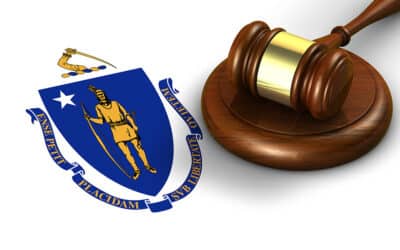The Massachusetts Housing Court system recently issued an Interim Standing Order 1-23 that will change many of the Court’s procedures regarding Summary Process (eviction) cases.The new Standing Order appears to be the next step toward returning to pre-pandemic procedures, with the majority of court events occurring in-person at the courthouse.
Beginning with cases filed after June 5, 2023, all housing specialist status conferences (mediations), evidentiary hearings, and trials will be held in-person at the housing court, unless there are extraordinary circumstances for a virtual appearance. Case management conferences, pretrial and status conferences, emergency motions with short notice (such as motions to stay the levy of an execution), and certain non-evidentiary hearings will be a virtual appearance by Zoom.
The two-tiered system that was introduced in a prior standing order is going to remain, though they have made modifications. The first-tier housing specialist status conference (mediation) will be scheduled no sooner than 30 days, but no longer than 60 days, after the case is filed with the Court. If a resolution is unable to be reached at this first-tier event, then the second-tier trial must be scheduled for exactly 2 weeks later. This Standing Order does not give any flexibility on this date.
A big change in this Standing Order is that the notice of the date and time for first-tier housing specialist status conference (mediation) will have to be served on the Defendant(s) by a Constable. The Standing Order is clear that the cost of the service can be passed onto the Defendant within an agreement or as a cost associated with the entry of judgment. Service has to be completed no later than 14 days before the initial first-tier event, and the return of service has to be filed with the court before that initial first-tier event.
For the second-tier trial, or any continuations agreed upon by the parties, the notice of the date and time of the court event does not have to be served. The Defendant(s) will be told of the date and time and expected to appear without receiving further notice.
If service of the notice is done by mail and comes back as “returned mail”, that must be e-filed, and the Court will not issue an execution after a default judgment in those instances where the Defendant did not receive the notice.
The overall impression of this Standing Order is that it attempts to resolve some of the frustrations that the judges and court staff were having under the previous system, and while it solves some frustrations it seems that it may cause other scheduling headaches for the Court. It remains an “interim” Standing Order and the Court is anticipating future changes.
If you have questions or would like to discuss these matters, please contact Drayton Law at 508-618-7250.
This blog is for informational purposes only. It should not be considered legal advice. All those who read this blog should seek the advice of a professional before taking action based upon any information provided herein.








